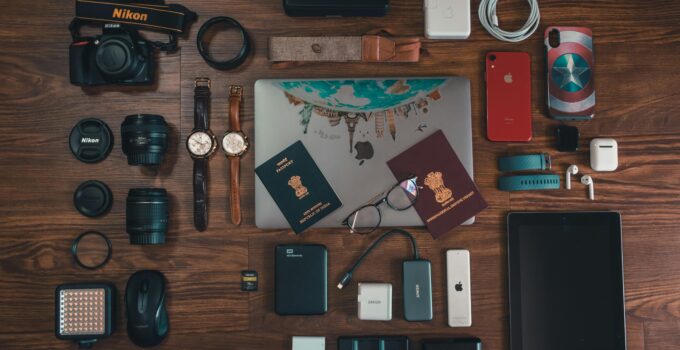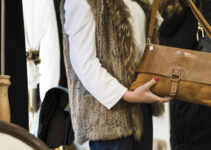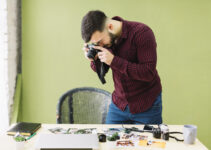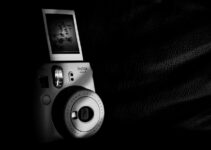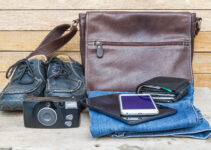Do you ever wonder which camera accessory can truly transform your photography game?
Whether you’re a seasoned professional or a passionate hobbyist, finding that one perfect tool can make all the difference in capturing breathtaking moments.
In a world where every click counts, my favorite camera accessory is undoubtedly the versatile prime lens.
Its ability to capture sharp, detailed images with beautiful bokeh effects is unmatched. Pair it with a wide aperture, and you’ll discover a whole new world of creative possibilities.
Here what is the best backpack camera style bag?
Curious to explore more about how prime lenses can elevate your photography? Join us as we delve into the world of prime lenses, uncovering tips and tricks from renowned photographers like Annie Leibovitz and Steve McCurry.
Let’s unlock the secrets to capturing stunning visuals that resonate with viewers and stand the test of time.
What is a camera accessory?
A camera accessory refers to any supplementary equipment used in conjunction with a camera to enhance its functionality, improve image quality, or provide additional features.
These accessories can range from simple attachments like lens caps, camera bags, and tripods to more complex tools such as external flashes, filters, and remote shutter releases.
Lens filters, for instance, alter the characteristics of light entering the lens, allowing photographers to achieve specific effects like reducing glare or enhancing colors.
External flashes provide additional light sources for better exposure in low-light conditions. Tripods offer stability for long-exposure shots or when shooting in challenging angles.
Camera accessories play a crucial role in expanding a photographer’s creative possibilities, improving the quality of their work, and ensuring the safety and longevity of their equipment.
How to choose camera accessories?
Choosing camera accessories involves considering several factors to ensure they align with your needs and equipment.

First, assess your photography style and goals. For example, if you do a lot of outdoor photography, investing in weather-resistant camera bags and lens hoods may be beneficial.
Next, research compatibility with your camera model. Ensure that the accessories you choose are compatible and offer seamless integration with your camera system to maximize functionality.
Consider the quality and reputation of the brand. Opting for well-known and reputable brands ensures reliability and durability.
Here, what’s your favorite camera bag for street photography?
Evaluate the specific features offered by each accessory. For instance, when selecting a tripod, consider its weight capacity, height adjustability, and portability.
Lastly, take budget into account. While quality is important, balance it with affordability to make practical choices.
By considering these factors, you can make informed decisions when choosing camera accessories that best suit your needs and enhance your photography experience.
What are the three important accessories for a digital camera?
Three important accessories for a digital camera are:
-
Lens Filters: Filters like UV filters protect the lens from scratches and dust. Polarizing filters reduce glare and enhance colors, especially in outdoor photography. Neutral density filters help control exposure in bright conditions, allowing for longer exposures or wider apertures.
-
Tripod: A sturdy tripod is essential for stable shots, especially in low light or when using slow shutter speeds. It ensures sharpness and reduces camera shake, crucial for long-exposure photography, landscapes, or portraits requiring precise framing.
-
Memory Cards: High-capacity, fast memory cards are crucial for storing photos and videos. Choose cards with sufficient storage capacity and write speeds compatible with your camera’s capabilities. Class 10 or UHS-I cards are recommended for most digital cameras to handle high-resolution images and video recording.
These accessories enhance photography by improving image quality, stability, and storage capabilities.
Why are camera accessories important?
Camera accessories are crucial for several reasons:
-
Enhanced Functionality: Accessories like lens filters, external flashes, and remote shutter releases expand a camera’s capabilities, allowing photographers to achieve specific effects, improve lighting, and control their shots remotely.
-
Improved Image Quality: Accessories such as tripods and stabilizers help reduce camera shake, resulting in sharper images, especially in low light or long-exposure situations. Lens accessories like filters can enhance colors, reduce glare, or protect the lens from damage.
-
Creative Flexibility: Accessories like different lenses, filters, and lighting equipment offer photographers creative flexibility to experiment with various styles, techniques, and effects, enhancing their artistic expression.
-
Equipment Protection: Camera bags, lens caps, and protective filters safeguard the camera gear from dust, scratches, moisture, and impact damage, prolonging their lifespan and maintaining optimal performance.
Here, 10 best Dakine camera bags.
Overall, camera accessories play a vital role in enhancing functionality, improving image quality, enabling creative expression, and protecting valuable equipment, making them essential for photographers of all levels.
My Top 17 favorite accessories I carry
1. Camera Bag
A camera bag is the backbone of any photographer’s gear. It should be durable, comfortable to carry, and have ample padding to protect your equipment.
Look for a bag with customizable compartments and dividers to organize your camera body, lenses, accessories, and personal items efficiently.
Consider additional features like weather resistance, anti-theft measures, and easy access pockets for essentials like memory cards, batteries, and cleaning tools.
2. Tripod
A sturdy tripod is indispensable for achieving sharp, stable shots, especially in low light or when using slow shutter speeds.
Look for a tripod that is lightweight yet robust enough to support your camera and lens setup.
Consider features like adjustable legs, quick-release plates, and a ball head for versatile positioning and smooth adjustments. Some tripods also come with built-in levels or hooks for added stability.
3. Lens Filters
Lens filters such as UV filters, polarizers, and neutral density filters are essential for controlling light, reducing glare, enhancing colors, and protecting your lenses.
UV filters act as a protective layer, polarizers eliminate reflections and boost contrast, while ND filters allow for longer exposures or wider apertures in bright conditions.
Invest in high-quality filters that match the thread size of your lenses for optimal performance and durability.
4. External Flash
An external flash provides additional light sources for better exposure, especially in indoor or low-light settings.
Look for a flash with adjustable power levels, tilt/swivel capabilities, and compatibility with your camera’s flash system.
Consider accessories like diffusers or bounce cards to soften harsh light and achieve more natural-looking portraits or scenes. Some flashes also offer wireless triggering options for off-camera flash setups.
5. Remote Shutter Release
A remote shutter release allows you to trigger your camera without touching it, reducing the risk of camera shake, especially during long exposures or tripod-mounted shots.
Here, top 10 tumi camera bags.

Choose between wired or wireless options based on your preferences and shooting needs. Some remote releases also offer intervalometer functions for time-lapse photography or bulb mode for extended exposures.
6. Lens Cleaning Kit
A lens cleaning kit is essential for maintaining the optical quality of your lenses.
It typically includes a blower brush, microfiber cloths, lens cleaning solution, and lens tissue.
Regularly cleaning your lenses helps remove dust, fingerprints, and smudges, ensuring clear and sharp images. Avoid using harsh chemicals or abrasive materials that could damage lens coatings.
7. Spare Batteries and Memory Cards
Always carry spare batteries and memory cards to avoid running out of power or storage space during a shoot.
Invest in high-capacity memory cards with fast write speeds and reliable brands for consistent performance. Similarly, have extra fully charged batteries to keep your camera powered throughout your photography sessions. Consider a battery grip for extended shooting sessions without interruptions.
8. Camera Rain Cover
A camera rain cover protects your gear from moisture, dust, and debris during outdoor shoots, especially in unpredictable weather conditions. Look for a cover that is waterproof, durable, and easy to install and remove.
Some covers also come with additional features like access flaps for controls and viewfinder, allowing you to continue shooting without compromising protection.
9. Lens Hood
A lens hood helps reduce lens flare and ghosting by blocking unwanted light from entering the lens. It also provides physical protection to the front element of your lens from accidental bumps and scratches.
Choose a hood designed specifically for your lens model to ensure proper fit and effectiveness. Consider collapsible or reversible hoods for compact storage when not in use.
10. Camera Strap
A comfortable and secure camera strap is essential for carrying your camera safely during shoots.
Look for straps with padded neoprene or leather material for comfort, adjustable length for customization, and anti-slip features to prevent slippage. Consider alternatives like sling straps or wrist straps for different shooting styles and preferences.
11. Lens Pen
A lens pen is a handy tool for quick and effective lens cleaning on the go.
Here, top 10 white camera bags.
It typically features a retractable brush for removing dust and a microfiber cleaning tip for smudges and fingerprints. Keep a lens pen in your bag for regular maintenance and to ensure clear and sharp images without any distractions.
12. Memory Card Case
A memory card case keeps your memory cards organized, protected, and easily accessible.
Look for a case with shock-resistant material, waterproof seals, and individual slots for each card to prevent damage and loss. Consider a compact and lightweight design for portability and convenience during travel or outdoor shoots.
13. Lens Blower
A lens blower is essential for removing dust and debris from your camera lenses and sensor without causing scratches or damage.
It uses a gentle blast of air to dislodge particles, keeping your optics clean and free from distractions.
Use the blower before using a lens brush or cloth to prevent scratching the lens surface.
14. Portable Power Bank
A portable power bank ensures you have backup power for charging your camera, smartphone, or other electronic devices during extended shoots or while traveling.
Look for a power bank with high capacity, fast charging capabilities, and multiple ports for charging multiple devices simultaneously. Consider lightweight and compact designs for easy carrying in your camera bag.
15. Lens Cap Keeper
A lens cap keeper prevents you from losing your lens caps during shoots or while changing lenses.
It attaches to your camera strap or bag, providing a secure place to store the lens cap when not in use.
Look for a keeper with a strong adhesive or snap-on mechanism for reliable attachment and quick access to your lens cap.
16. Cable Ties or Velcro Straps
Cable ties or Velcro straps help keep your cables, cords, and accessories organized and tangle-free inside your camera bag. Use them to bundle and secure cables for your camera, flash, remote triggers, or other devices.
Consider color-coded ties or labels for easy identification and quick access to specific cables when needed.
17. Lens Collar or Tripod Mount Ring
A lens collar or tripod mount ring provides better balance and stability when mounting heavy lenses on a tripod. It reduces strain on the lens mount and camera body, preventing potential damage or misalignment.
Look for a collar or ring designed specifically for your lens model to ensure compatibility and secure attachment to your tripod.
Consider models with adjustable knobs or locking mechanisms for precise adjustments and lockdown during shoots.
Camera accessory bag
A camera accessory bag is a specialized carrying case designed to store and transport a photographer’s equipment safely and conveniently.
These bags come in various sizes, styles, and configurations to accommodate different types of gear, from cameras and lenses to batteries, memory cards, and cleaning tools.
The primary purpose of a camera accessory bag is to provide protection against physical damage, dust, moisture, and other environmental factors that could harm delicate photography equipment.

They often feature padded compartments, adjustable dividers, and secure closures like zippers or buckles to keep items organized and secure during transport.
Here, top 5 atlas camera bags.
Additionally, camera accessory bags may include external pockets or pouches for quick access to frequently used items, such as lens caps, filters, or a camera strap.
Some bags also offer ergonomic designs with padded straps or handles for comfortable carrying, making them essential accessories for photographers on the go.
Best Mirrorless camera accessories
The best mirrorless camera accessories depend on the photographer’s needs and shooting style but typically include:
-
Extra Batteries: Mirrorless cameras can drain batteries quickly, so having spare batteries ensures uninterrupted shooting sessions.
-
Fast Memory Cards: High-speed memory cards are crucial for recording high-resolution images and videos without buffering or delays.
-
Lens Adapters: Adapters allow the use of different lens mounts with your mirrorless camera, expanding your lens options.
-
External Flash: An external flash provides additional lighting options, especially in low-light conditions or for creative lighting effects.
-
Camera Bag: A well-padded camera bag protects your gear and keeps it organized during travel or outdoor shoots.
-
Tripod or Monopod: Stabilization tools are essential for sharp images, long exposures, or capturing video footage.
-
Lens Filters: Filters like UV, polarizers, and ND filters enhance image quality and allow for creative effects.
These accessories complement a mirrorless camera’s capabilities, improving functionality, image quality, and versatility in various shooting scenarios.
Must have DSLR accessories
Must-have DSLR accessories can significantly enhance your photography experience:
-
Lens Filters: UV filters protect lenses, while polarizers reduce glare and improve color saturation. ND filters help control exposure in bright conditions.
-
Tripod: Sturdy tripods ensure sharp images, especially in low light or with slow shutter speeds, and enable stable long-exposure shots.
-
External Flash: Provides additional light for better exposure, especially indoors or in low-light situations.
-
Camera Bag: Protects your gear from damage and keeps it organized during travel or outdoor shoots.
-
Remote Shutter Release: Reduces camera shake for sharp images, ideal for long exposures or tripod-mounted shots.
-
Lens Cleaning Kit: Maintains optical quality by removing dust and smudges from lenses.
-
Spare Batteries and Memory Cards: Essential for uninterrupted shooting sessions.
-
Camera Strap: Ensures comfortable and secure carrying of your camera during shoots.
These accessories cater to various needs, from image quality and stability to equipment protection and convenience, making them essential for DSLR photographers.
Here, tory burch camera bag sale.
What are your essential photography accessories?
Related faq’s
What are the most important camera accessories?
The most important camera accessories include a sturdy tripod for stability, lens filters for image control.
Thus and protection, extra batteries and memory cards for uninterrupted shooting, a reliable camera bag for protection and organization, and a lens cleaning kit for optical maintenance.
These accessories collectively enhance image quality, ensure smooth shooting sessions, protect equipment, and contribute to a photographer’s overall efficiency and creativity.
What accessories do I need for a DSLR camera?
For a DSLR camera, essential accessories include such as.
A sturdy tripod for stability, lens filters (UV, polarizers, ND) for image control, an external flash for additional lighting, a camera bag for protection and organization.
Thus, a remote shutter release for reducing camera shake, spare batteries and memory cards for uninterrupted shooting, a lens cleaning kit for optical maintenance, and a comfortable camera strap for carrying.
These accessories collectively enhance image quality, ensure smooth shooting sessions, protect equipment, and contribute to a photographer’s overall efficiency and creativity.
What should you carry in your camera bag?
In your camera bag, carry essential items like your camera body, lenses (wide-angle, standard, telephoto), lens filters (UV, polarizer, ND), spare batteries, extra memory cards, lens cleaning kit, tripod or monopod, external flash, remote shutter release, camera strap, lens hood, lens cap, and a notebook with pen.
Additionally, consider including a portable power bank, lens pen, rain cover, cable ties or Velcro straps for organization, and a small first aid kit.
These items cater to various shooting scenarios, ensuring you’re prepared for different conditions and creative needs.
What is camera equipment?
Camera equipment refers to the tools and accessories used in photography, including cameras (DSLRs, mirrorless, point-and-shoot), lenses (wide-angle, telephoto, macro), lens filters (UV, polarizers, ND), tripods, camera bags, external flashes, remote shutter releases, memory cards, spare batteries, lens cleaning kits, camera straps, lens hoods, and portable power banks.
This equipment serves various purposes such as capturing images, controlling light and exposure, stabilizing shots, protecting gear, and enhancing creativity.
Professional photographers and enthusiasts carefully select and use camera equipment based on their specific needs, shooting styles, and the desired outcomes for their photographs.
Where can I buy camera accessories?
You can buy camera accessories from various sources, including:
- Camera Stores: Specialized camera stores offer a wide range of accessories, providing expert advice and compatibility guidance.
- Online Retailers: Websites like Amazon, B&H Photo Video, Adorama, and Best Buy have extensive selections of camera accessories with customer reviews and ratings.
- Manufacturer Websites: Directly purchasing from camera manufacturers like Canon, Nikon, Sony, or Fujifilm ensures authenticity and compatibility.
- Electronics Stores: Large retailers such as Walmart, Target, and Costco also carry a selection of camera accessories in their electronics departments.
- Photography Expos and Events: Attending photography expos or events often includes access to vendors selling camera equipment and accessories.
What are the best accessories for a beginner photographer?
The best accessories for a beginner photographer include:
- Camera Bag: Provides protection and organization for camera and accessories.
- Tripod: Ensures stability for sharp images, especially in low light or long exposures.
- Lens Filters: UV filter for lens protection, polarizer for reducing glare, ND filter for exposure control.
- Extra Batteries and Memory Cards: Ensures uninterrupted shooting and ample storage capacity.
- Lens Cleaning Kit: Maintains optical quality by removing dust and smudges.
- Camera Strap: Comfortable and secure carrying of the camera during shoots.
- External Flash: Provides additional lighting options for better exposure.
These accessories cater to a beginner’s needs, enhancing image quality, protection, and shooting convenience.
What are the necessary camera accessories?
The necessary camera accessories include:
- Camera Bag: Protects and organizes camera and accessories.
- Tripod: Provides stability for sharp images and long exposures.
- Lens Filters: UV filter for lens protection, polarizer for reducing glare, ND filter for exposure control.
- Extra Batteries and Memory Cards: Ensures uninterrupted shooting and ample storage.
- Lens Cleaning Kit: Maintains optical quality.
- Camera Strap: Comfortable carrying during shoots.
- External Flash: Additional lighting options for better exposure.
- Remote Shutter Release: Minimizes camera shake.
- Lens Hood: Reduces lens flare and protects the lens.
- Camera Rain Cover: Protects gear from moisture during outdoor shoots.
Conclusion:
In conclusion, favorite camera accessory would have to be a versatile tripod. It provides stability for long exposures, helps frame shots with precision, and allows for creative angles.
With a good tripod, photographers can elevate their work and capture stunning images that showcase their vision and skills.

